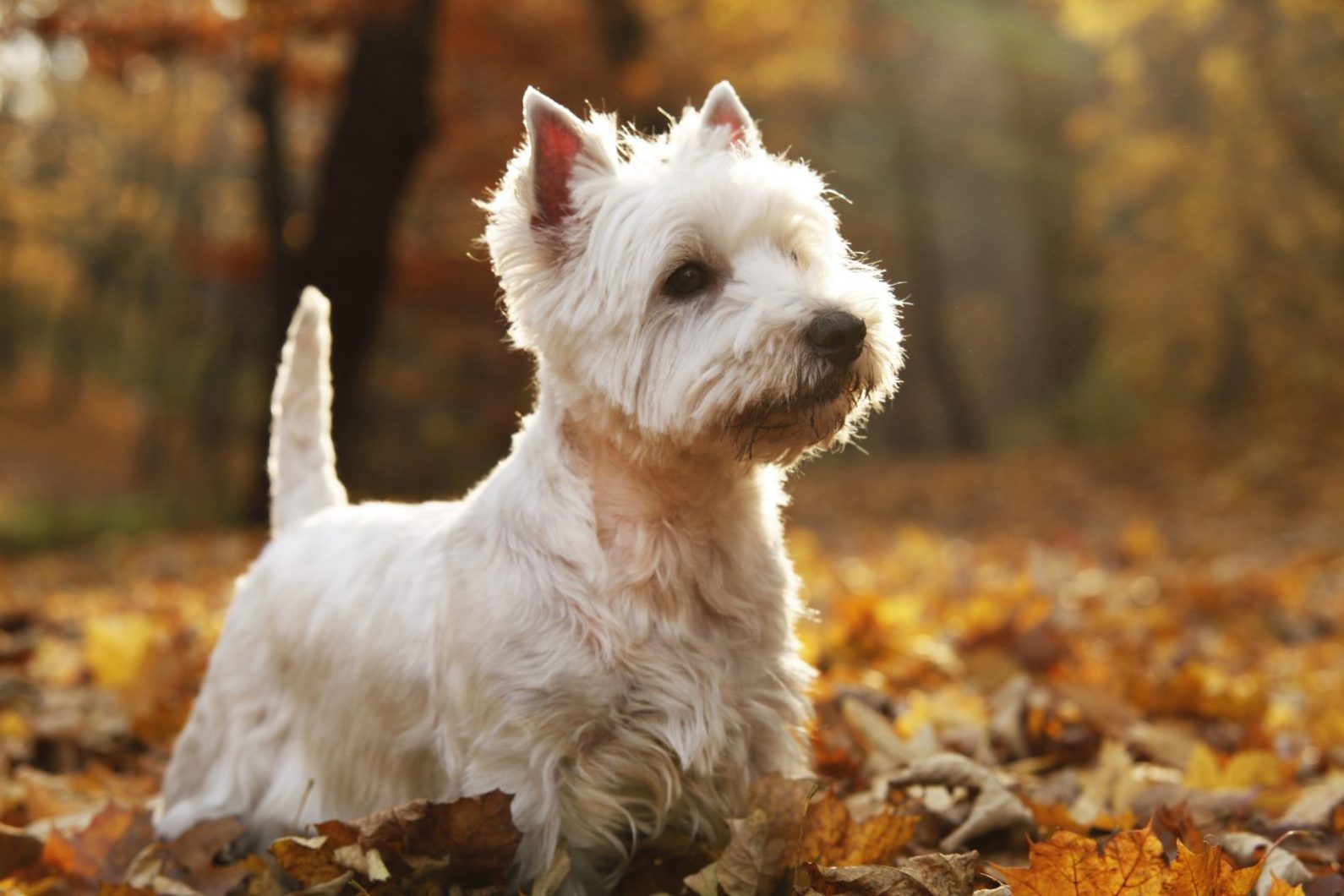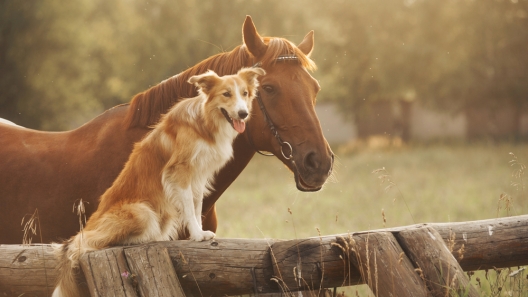-
Activity Level:
moderate
-
Shedding Level:
moderate
-
Grooming Level:
moderate
-
Trainability:
moderate
-
Good for Novice Owners:
moderate
-
Adaptability:
high
-
Kid/Pet Friendly:
often
-
Prey Drive:
high
-
Watchdog:
very alert
- Average Size: Small
- Average Lifespan: 13-15 years
- Registered?: aca, akc
West Highland Terrier Dog Breed Information
Overview
Temperament
Adaptability
Health
Owner Experience
Grooming
Activity Level
Size
Life Span
Did You Know?
The West Highland Terrier, West Highland White Terrier, or Westie is an energetic, fun-loving dog that can fit well in any sized family. This dog breed originated in Scotland when Edward Donald Malcolm began a series of breeding programs prior to the 20th century to develop a sturdy, determined, and capable rat exterminator. The American Kennel Club recognized the West Highland Terrier in 1908 as a member of the Terrier Group.
Now, the Westie has become one of the most popular dog breeds in the UK and the US, and is gaining popularity around the world. Westies have even become the mascot of the dog food brand Cesar and have been used in advertising for Black & White Scotch Whiskey, Juicy Couture, and more. Not only are these little dogs popular for their sunny dispositions, but also for their adorable faces!
West Highland Terriers are affectionate with their families and love spending time with them. Well-socialized Westies tend to get along well with children and other dogs in the family. They may be more reserved with strangers, but do tend to warm up once introduced.
They are terriers through and through, so they have a high prey drive and have been known to chase anything that moves. This can be a challenge with other smaller pets in the household. Individual Westies may do well with animals they were raised with and may respond well to extra socialization and training.
These little dogs are also prone to barking and will alert you of anyone coming on the property. Although you likely won’t be able to stop the behavior, you can train your dog to stop barking and socialize them well to keep it to reasonable alert barking and keep it from becoming a seemingly never-ending nuisance.
Westies are highly adaptable little dogs. As long as they get enough daily exercise, mental stimulation, and attention, they adapt well to apartments or larger homes with fenced yards. Because of their high prey drive and the urge to chase, it is recommended to only let them off-leash in securely fenced areas.
They do well in most climates. As with any dog, they are sensitive to heat and extreme cold. They have a double coat that helps them a little in colder weather. But, they are not a snow dog breed, so you may still need some winter dog products to keep them warm while out on walks in the cold.
Despite being strong-willed and seeming independent at times, West Highland Terriers bond closely with their families and prefer to be with them. They may not be considered the classic “Velcro dog”, but they still do not like to spend long periods of time alone.
Potential health concerns to be aware of in West Highland Terriers can include patellar luxation, cardiac disease, hip dysplasia, and craniomandibular osteopathy, or “Westie jaw”. This is a condition that causes an overgrowth of the jaw bone that can become painful over time and may even need surgery to correct.
Good breeding practices make a big difference in the health of Westie puppies and reputable breeders will screen their dogs to make sure they are not passing preventable congenital issues to puppies. Make sure you ask about the health and genetic history of both parents.
You can also ask about any health tests or clearances that have been done. The national breed club recommends a hip evaluation, a patella evaluation, and an ophthalmologist evaluation at a minimum.
West Highland Terriers are intelligent dogs that can pick up on things quickly, but they are also energetic and have that typical terrier independence and strong will. Although Westies respond well to patient, consistent training with plenty of positive rewards, they can still be a challenge for first-time dog owners.
So, puppy training classes are recommended. There are other benefits of puppy training classes including socialization, so they can be a good idea even if you don’t necessarily need them for help with training.
Westies can be prone to barking and digging if they are left to their own devices. In fact, one of the facts about Westies is that they like to dig. So, be sure to work on these behaviors early and often.
Westies have a white, fluffy double coat. Their undercoat is soft and fluffy while their top coat is rough and wiry. They will shed moderately year-round and heavier as the seasons change. Brushing a few times a week, daily brushing during seasonal shedding, and a monthly bath are usually enough to keep their coat looking great.
In addition to coat care, you will also need to take care of your West Highland Terrier’s nails, ears, and teeth. Monthly or twice-monthly nail trims are usually sufficient to keep their nails from getting too long. Weekly ear checks and careful cleanings, as needed, can help prevent ear infections.
Good dental care for dogs, like brushing their teeth every day and getting cleanings at the vet as needed, can help prevent painful dental diseases later in life. As a small dog breed, Westies are more prone to developing these, which only makes good dental care early and throughout their lives even more important.
Although Westies can seem like high-energy dogs during their playful bursts of energy, they tend to sit in a more moderate range. They certainly are not couch potatoes, but they don’t seem to have endless energy either. Daily walks plus some playtime and time to run are usually enough for these little dogs.
But, they’re happy to be active with you, so will likely be up for more activity if you are. They are also known to be quite athletic. Once puppies are finished growing and developing, you can get cleared by the vet for higher-impact activities like agility training, hiking, and more. West Highland Terriers are known to excel at a variety of dog sports, so don’t be afraid to try a few and see if your Westie likes them.
Fully-grown Westies usually stand 10-11 inches tall and weigh 15-20 pounds.
West Highland Terriers generally live for 13-15 years on average.
The Westie used to be called a Roseneath Terrier and this was the original registered name. In 1909, it was updated to be West Highland White Terrier.









